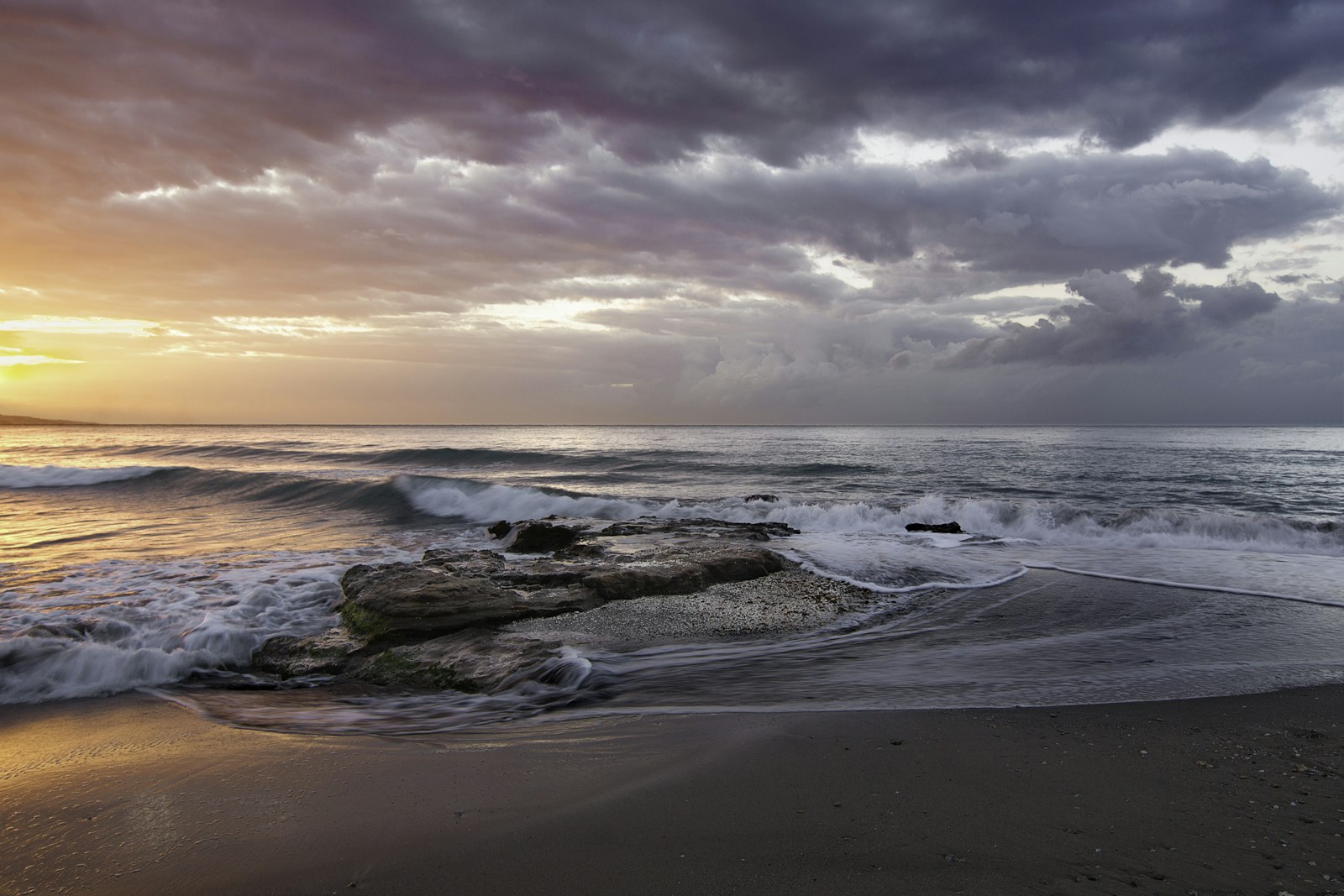
playa

beach
A 'Playa' is a landform alongside a body of water filled with sand, pebbles, or cobblestones. It is a popular location for vacations and fun activities.
Example sentences using: playa
Hace calor en la playa.

It's hot at the beach.
This sentence is expressing the sensation of heat at the beach. 'Hace calor' is a phrase used to denote 'it's hot'.
Vamos a la playa.

We go to the beach.
This is a common phrase used when telling someone your plans to go to the beach. 'Vamos' is the first-person plural form of the verb 'ir', which means 'to go'.
Traje mi toalla a la playa.

I brought my towel to the beach.
This sentence shows the past action of taking an object (in this case, a towel) to the beach.
Ves la playa?

Do you see the beach?
This is a question asking if someone is able to see the beach. 'Ves' is the second-person singular form of the verb 'ver', which means 'to see'.
Mi playa favorita es en España.

My favorite beach is in Spain.
In this sentence, the person is expressing preference for a beach that is located in Spain.
Hay muchos turistas en la playa.

There are many tourists on the beach.
This sentence describes a situation where a lot of tourists are present on the beach. 'Hay' is used to express there is/there are in Spanish.
Comí helado en la playa.

I ate ice cream at the beach.
This sentence shares a past action of eating ice cream while being at the beach.
Voy a jugar voleibol en la playa.

I am going to play volleyball at the beach.
This sentence states the intention to play volleyball at the beach. 'Voy a jugar' expresses a future action and means 'I am going to play'.
Me gustan las puestas de sol en la playa.

I like sunsets at the beach.
This sentence shows one's appreciation for witnessing sunsets at the beach. 'Me gustan' is used to express preference or liking.
La playa es hermosa.

This sentence is used when describing the physical appearance of a beach. 'Es' is the third-person singular form of the verb 'ser', which is used to express identity or characteristics.
None